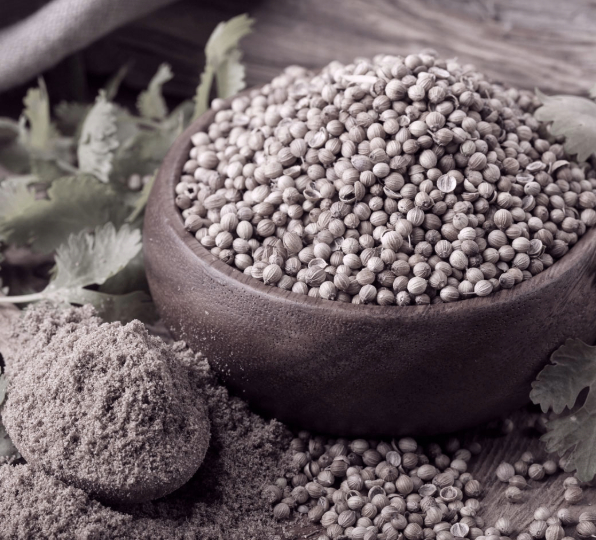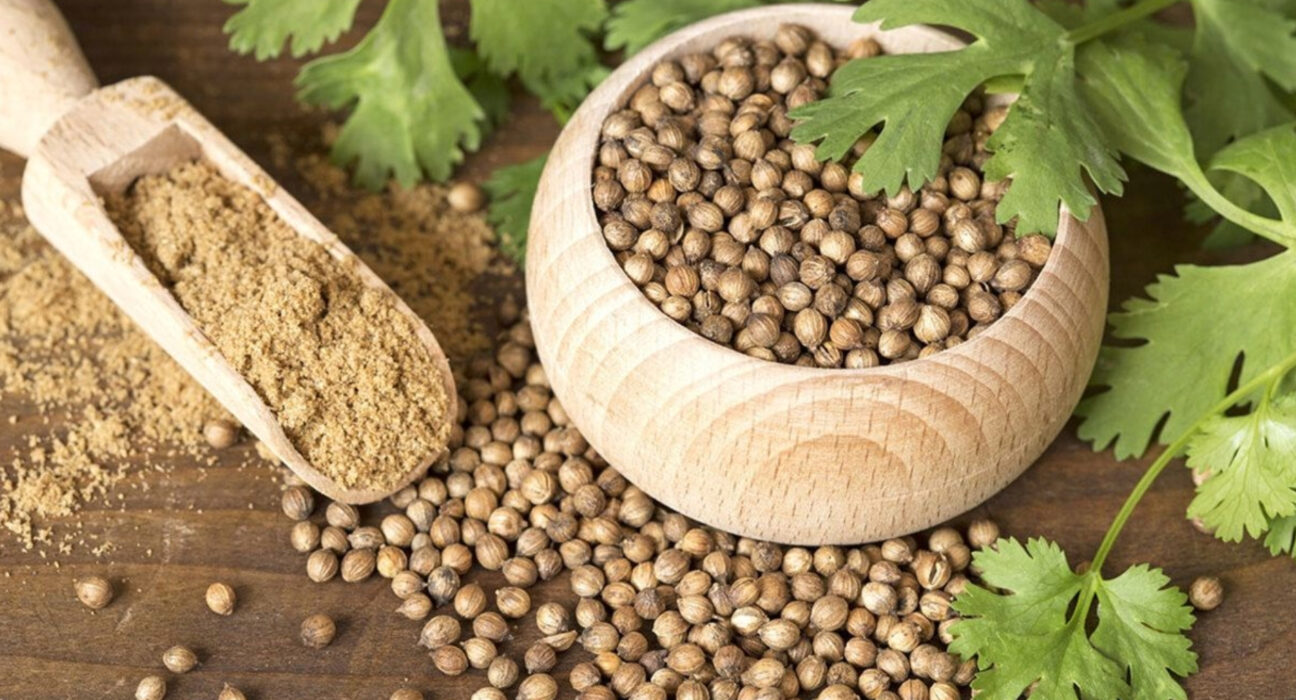Introduction:
Millions of people suffer from urinary tract infections (UTIs) every year; women are disproportionately affected by this common and uncomfortable illness. Even though doctors frequently prescribe antibiotics to treat UTIs, some people turn to home remedies to reduce symptoms and promote urinary tract health. Coriander seeds are one such remedy; their powerful healing properties have been used for centuries in traditional medicine. We’ll look at how eating coriander seeds can help prevent UTIs and enhance urinary health in general in this blog.
1. Anti-Microbial Properties
Coriander seeds, derived from the Coriandrum sativum plant, are renowned not only for their culinary uses but also for their potential health benefits. Among their many bioactive compounds, coriander seeds contain natural substances like cineole, linalool, and borneol, which exhibit potent antimicrobial properties. These properties make coriander seeds a promising natural remedy for combating bacterial infections, including urinary tract infections (UTIs) commonly caused by pathogens like Escherichia coli (E. coli).
UTIs are among the most prevalent bacterial infections worldwide, affecting millions of individuals each year. E. coli is the primary culprit behind many UTIs, as it can colonize the urinary tract and cause inflammation and discomfort. Antibiotics are typically prescribed to treat UTIs; however, the overuse of antibiotics has led to concerns about antibiotic resistance and the need for alternative treatment options.
Coriander seeds offer a natural and potentially effective solution for UTIs due to their antimicrobial properties. The active compounds found in coriander seeds have been shown to inhibit the growth of bacteria, including E. coli, in laboratory studies. These compounds work by disrupting bacterial cell membranes, interfering with essential cellular processes, and inhibiting bacterial growth and proliferation.
Consuming coriander seeds may help prevent UTIs by reducing the growth and colonization of bacteria in the urinary tract. Additionally, coriander seeds possess diuretic properties, which can increase urine production and promote the flushing of bacteria from the urinary tract, further reducing the risk of infection.
Incorporating coriander seeds into your diet is easy and versatile. They can be used whole or ground as a flavorful spice in various dishes, including soups, stews, curries, and marinades. Additionally, coriander seeds can be brewed into a soothing herbal tea or infused into water for a refreshing beverage.
While coriander seeds show promise as a natural remedy for UTIs, it’s essential to consult with a healthcare professional for proper diagnosis and treatment. While coriander seeds may offer complementary support, severe or recurrent UTIs may require medical intervention, including antibiotic therapy. Nevertheless, incorporating coriander seeds into your diet may contribute to urinary tract health and overall well-being, thanks to their antimicrobial properties and potential to combat bacterial infections.
2. Diuretic Effects
Coriander seeds, derived from the Coriandrum sativum plant, have long been recognized for their medicinal properties, including their diuretic effects. Acting as a natural diuretic, coriander seeds can enhance urine production and promote the elimination of toxins and bacteria from the urinary tract, making them a potentially valuable remedy for urinary tract infections (UTIs) and related symptoms.
The diuretic properties of coriander seeds are attributed to various active compounds found within them, including volatile oils such as linalool, geranyl acetate, and camphor. These compounds work by increasing urine output and promoting kidney function, which helps flush out excess fluid, waste products, and pathogens from the body.
By stimulating urine flow, coriander seeds play a crucial role in maintaining urinary tract health and preventing the accumulation of harmful bacteria. When bacteria such as Escherichia coli (E. coli) colonize the urinary tract, they can cause infection and inflammation, leading to symptoms such as burning urination, discomfort, and urgency.
Consuming coriander seeds can help alleviate UTI symptoms by promoting the elimination of bacteria and reducing inflammation in the urinary tract. The increased urine flow facilitated by coriander seeds helps flush out bacteria, toxins, and inflammatory substances, providing relief from discomfort and promoting faster recovery.
In addition to their diuretic effects, coriander seeds possess anti-inflammatory properties, further enhancing their effectiveness in relieving UTI symptoms. By reducing inflammation in the urinary tract, coriander seeds can alleviate pain, swelling, and irritation associated with UTIs, improving overall comfort and well-being.
Incorporating coriander seeds into your diet is simple and convenient. They can be used as a flavorful spice in cooking or brewed into a soothing herbal tea. Additionally, coriander seed extracts and supplements are available for those seeking a more concentrated form of treatment.
While coriander seeds offer promising benefits for urinary tract health, it’s essential to consult with a healthcare professional for proper diagnosis and treatment of UTIs, especially if symptoms are severe or persistent. Nevertheless, incorporating coriander seeds into your diet can provide natural support for urinary tract health and help alleviate symptoms associated with UTIs, thanks to their diuretic and anti-inflammatory properties.
3. Anti-Inflammatory Properties
Coriander seeds offer a holistic approach to promoting urinary tract health, not only through their antimicrobial and diuretic properties but also via their anti-inflammatory effects. Alongside their ability to combat harmful bacteria and increase urine production, coriander seeds contain compounds that help mitigate inflammation, providing comprehensive relief from urinary tract infections (UTIs) and supporting overall urinary tract well-being.
Inflammation plays a significant role in UTIs, contributing to the characteristic symptoms of pain, burning sensation during urination, and discomfort in the pelvic region. Coriander seeds contain natural compounds such as cineole, linalool, and borneol, which possess anti-inflammatory properties. These compounds work by modulating inflammatory pathways in the body, reducing the production of pro-inflammatory molecules and mitigating tissue damage and swelling in the urinary tract.
By incorporating coriander seeds into your diet, you can harness their anti-inflammatory effects to alleviate UTI symptoms and promote urinary tract health. Consuming coriander seeds may help reduce pain, burning, and discomfort associated with UTIs, enhancing overall well-being and quality of life.
Furthermore, the anti-inflammatory properties of coriander seeds extend beyond UTIs, offering potential benefits for other inflammatory conditions affecting the urinary tract, such as interstitial cystitis and urinary tract inflammation due to kidney stones or bladder irritation.
Coriander seeds can be easily incorporated into your daily routine in various ways. They can be used as a flavorful spice in cooking, added to soups, stews, curries, and salads, or brewed into a soothing herbal tea. Additionally, coriander seeds can be ground and used as a seasoning blend or incorporated into homemade dressings and marinades.
While coriander seeds offer promising benefits for urinary tract health, it’s essential to consult with a healthcare professional for proper diagnosis and treatment of UTIs or other urinary tract issues. While coriander seeds may provide complementary relief from symptoms, severe or recurrent UTIs may require medical intervention, including antibiotic therapy. Nevertheless, incorporating coriander seeds into your diet can contribute to overall urinary tract health and well-being, thanks to their multifaceted therapeutic properties.
4. Rich in Nutrients
Coriander seeds are not only flavorful but also packed with essential nutrients that contribute to overall health and well-being. These tiny seeds are rich in a variety of vitamins, minerals, and antioxidants, making them a valuable addition to any diet.
One of the key nutrients found in coriander seeds is vitamin C, a potent antioxidant known for its role in supporting immune function and protecting cells from oxidative stress. Vitamin C plays a crucial role in the body’s defense against infections by promoting the production of white blood cells and enhancing their ability to combat pathogens. Incorporating coriander seeds into your diet provides a natural source of vitamin C, helping to strengthen the immune system and reduce the risk of urinary tract infections (UTIs).
Additionally, coriander seeds are an excellent source of vitamin K, a fat-soluble vitamin essential for blood clotting and bone health. Vitamin K also exhibits anti-inflammatory properties and may help reduce inflammation in the urinary tract, providing relief from UTI symptoms such as pain and discomfort.
Coriander seeds are also rich in minerals like iron and manganese, both of which play vital roles in various physiological processes. Iron is essential for the production of red blood cells and oxygen transport, while manganese is involved in bone formation, wound healing, and antioxidant defense. Including coriander seeds in your diet can help ensure adequate intake of these essential minerals, supporting overall health and well-being.
Furthermore, coriander seeds contain a range of antioxidants, including flavonoids, phenolic compounds, and carotenoids, which help neutralize harmful free radicals and protect cells from damage. These antioxidants have anti-inflammatory and antimicrobial properties, which may contribute to urinary tract health and reduce the risk of UTIs.
Incorporating coriander seeds into your meals and snacks is an easy and delicious way to boost your intake of essential nutrients and support overall health. Whether sprinkled on salads, added to soups and stews, or used to season meat and vegetable dishes, coriander seeds offer a flavorful and nutritious addition to a balanced diet. By harnessing the rich nutritional benefits of coriander seeds, you can strengthen your immune system, support urinary tract health, and promote overall well-being.
5. Easy to Incorporate Into Your Diet
Incorporating coriander seeds into your diet is not only effortless but also adds a delightful burst of flavor and aroma to your meals and beverages. These versatile seeds can be seamlessly integrated into a wide range of dishes and culinary creations, making them a convenient and accessible ingredient for everyday cooking.
One of the simplest ways to enjoy coriander seeds is to use them as a seasoning or spice. Ground coriander seeds can be sprinkled onto salads, soups, stews, and curries to enhance their flavor profile and add depth to the dish. The warm, citrusy flavor of coriander seeds complements a variety of cuisines, from Indian and Thai to Mediterranean and Latin American, making them a versatile and globally-inspired ingredient.
For a refreshing and soothing beverage, consider brewing coriander seed tea. Simply crush coriander seeds using a mortar and pestle or a spice grinder, then steep them in hot water for a few minutes to release their aromatic oils and flavors. The resulting infusion offers a fragrant and healing beverage that can be enjoyed hot or cold, providing a comforting and nourishing treat for any time of day.
In addition to seasoning dishes and brewing tea, coriander seeds can be used to infuse oils, vinegars, and marinades with their unique flavor profile. Simply add whole coriander seeds to your favorite cooking oils, vinegars, or marinades and allow them to infuse for a few days to impart their distinctive taste and aroma. The infused oils can then be used to dress salads, drizzle over grilled vegetables, or flavor roasted meats, adding an extra layer of complexity to your culinary creations.
Whether you’re a seasoned home cook or just starting to explore the world of spices and seasonings, incorporating coriander seeds into your diet is a simple and enjoyable way to elevate your meals and enhance your culinary repertoire. With their versatility, convenience, and aromatic flavor profile, coriander seeds are a must-have ingredient for any kitchen pantry, offering endless possibilities for creative cooking and delicious dining experiences.


Conclusion:
Coriander seeds are a natural and effective remedy for urinary tract infections, thanks to their antimicrobial, diuretic, and anti-inflammatory properties. By incorporating coriander seeds into your diet, you can help fight off UTIs, alleviate symptoms, and promote overall urinary tract health. Whether enjoyed as a spice in cooking or brewed into a healing tea, coriander seeds offer a safe and gentle solution for UTI relief, allowing you to harness the healing powers of nature to support your well-being.












